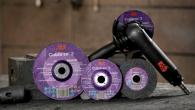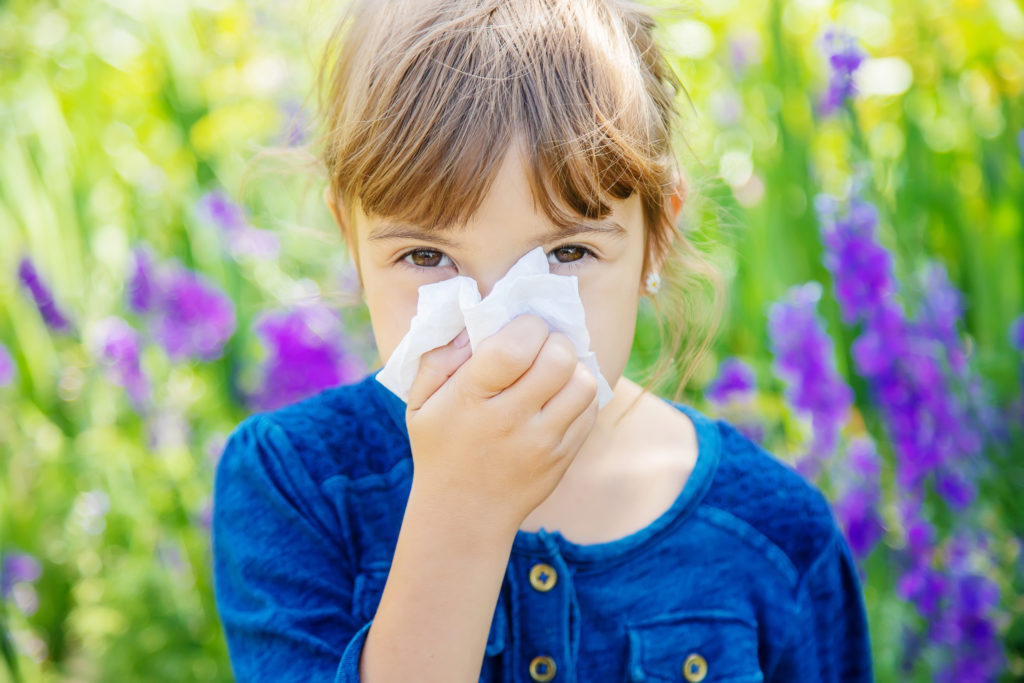
If you are like me, hay fever and pet allergen sensitivity is making Spring, the supposedly most glorious season of the year, a time of absolute misery.
Many Australians will spend the coming months conducting a symphony of sniffing, sneezing and the sound of scratching our reddened, allergy-ridden eyeballs.
Foremost on our blurry minds will be the quest to reduce pollens and allergy symptoms.
Fortunately, studies show the use of HEPA filter air purifiers can significantly reduce pollen and seasonal allergy symptoms.
What are HEPA filters?
The best air purifiers for allergies contain a specialist type of filter called a High-Efficiency Particulate Absorbing (HEPA) filter, which is capable of catching the tiniest airborne pollutants and irritants.
HEPA filters have a multilayer network of very fine fiberglass threads - thinner than a strand of a human hair - making them incredibly efficient at capturing smaller particles. Even miniscule dust mite waste is not a problem for these machines.
Studies Show HEPA Air Purifiers Reduce Pollen and Seasonal Allergy Symptoms
Air purifiers equipped with HEPA filters are designed to clean the air in a room by trapping allergens and pushing filtered, clean air back into the space. Thereby, dramatically reducing particles making their way into our bodies as we breathe.
This is backed up by multiple studies, which have shown that HEPA air purifiers are effective at reducing seasonal allergy symptoms.
One double-blind study showed significant reduction in allergy symptoms for those using a HEPA air purifier in their room versus the control group. After just 2-4 weeks, allergy symptoms and medication use decreased by 16% - putting you well on the road from misery to happiness!
The study also showed the HEPA air purifier removed the majority of particulates in the room, which are the typical cause of allergy symptoms.
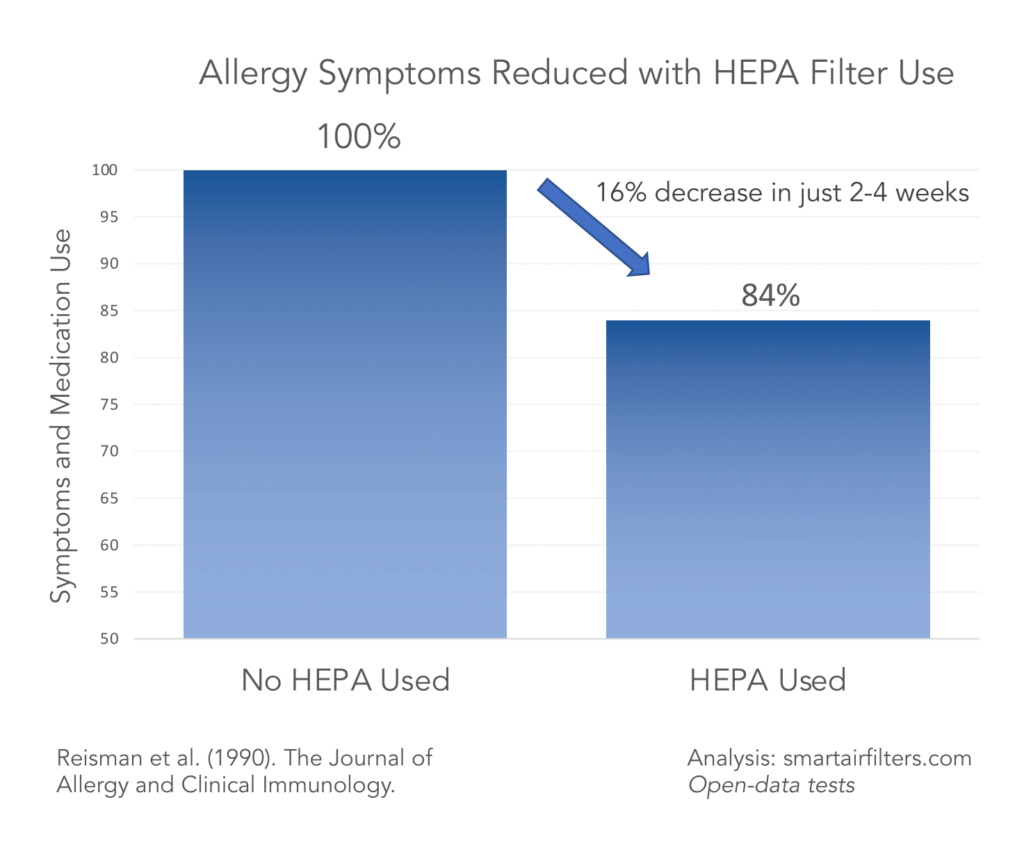
Researchers have also studied how HEPA air purifiers affect children with allergic rhinitis. A study showed children with allergic rhinitis had significant allergy relief, particularly nasal symptoms, when the HEPA air purifiers were used.
Investing in one of the best air purifiers for allergies may be the perfect solution to your problems. These devices help to trap pesky allergens and improve the quality of the air you breathe. In fact, the best machines are able to remove up to 99.97% of unwanted particles, including dust, volatile organic compounds, smoke and harmful microbes.
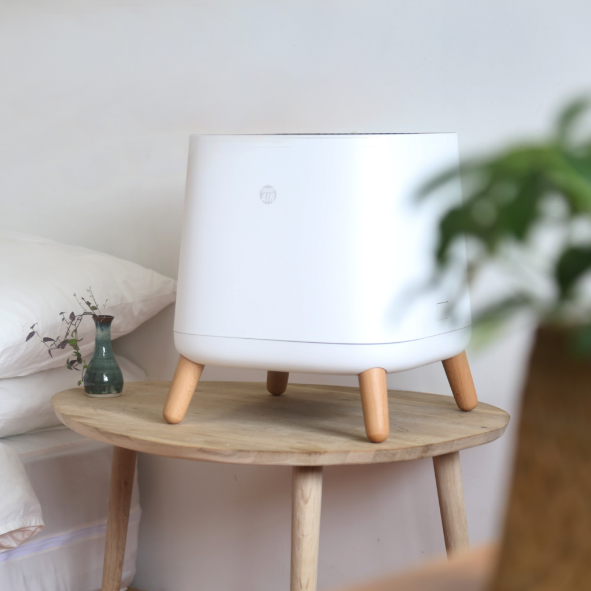
Sqair HEPA air purifier used in a bedroom for allergy relief
How Do HEPA Air Purifiers Reduce Pollen and Seasonal Allergy Symptoms?
Seasonal allergy symptoms typically result from exposure to particulates such as pollens and mould spores. These particulates typically range in size from 10 to 200 microns for pollen, and 4 to 20 microns for mould spores.
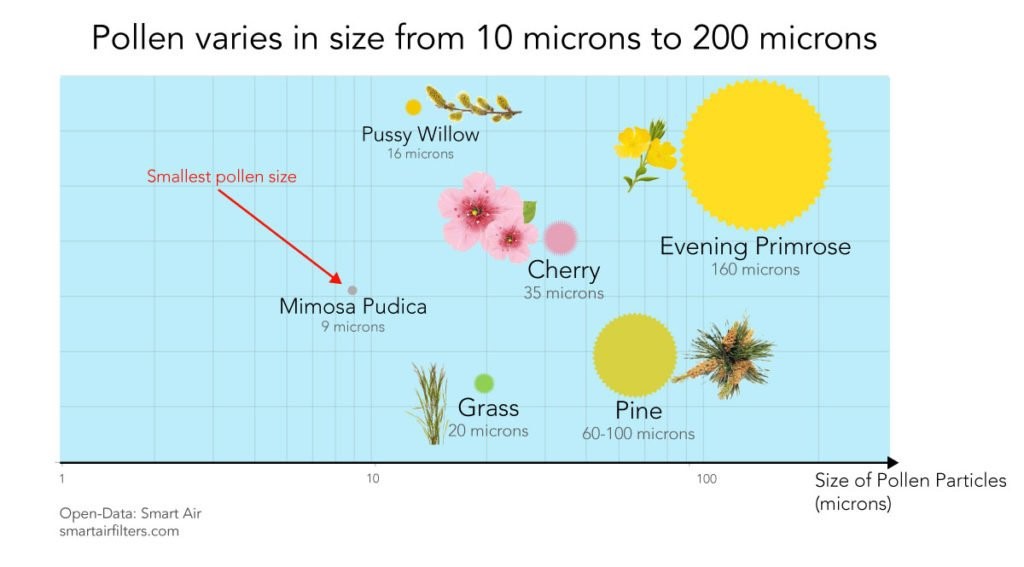
Even smaller particulates under 2.5 microns in size, called PM2.5, are also shown to exacerbate allergy symptoms. These PM2.5 particulates are in the air nearly everywhere, even indoors. How small exactly are these particulates? Below puts in perspective how small a 2.5 micron particulate is...

Air purifiers that use HEPA filters can trap 99.97% of all particulates above 0.3 microns on the first pass. This includes pollen, mould spores, dust mites, PM2.5 and other allergens. With a strong enough purifier, nearly all of these allergens can be removed from a room within 30 minutes.
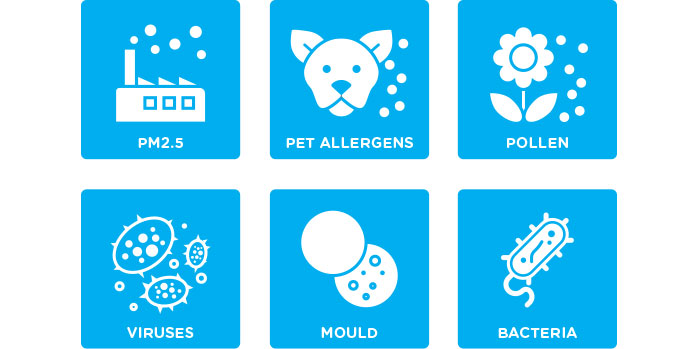
Do Air Purifiers Help with Asthma?
It is well known that allergies can trigger an asthma attack in both children and adults.
If allergens such as dust mites, pollens, mould or pet dander (which can consist of animal fur, skin and saliva) trigger your asthma, then using an air purifier will definitely help in reducing the severity and frequency of attacks.
However, it is essential to point out that, although very helpful, air purifiers are not a replacement for medical asthma treatment like inhalers. Always consult your doctor or seek professional medical advice before changing your prescribed medical routine.
Air Purifiers – Your Spring Bling!
Air purifiers trap dust, pollen and other pollutants floating around in the air we breathe, so they can be effective at removing the source of allergies. Using an air purifier with a HEPA filter in the Spring months will help alleviate a lot of the symptoms of hay fever - Allergy Relief never looked so good!



